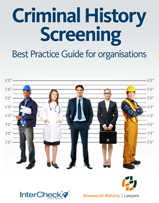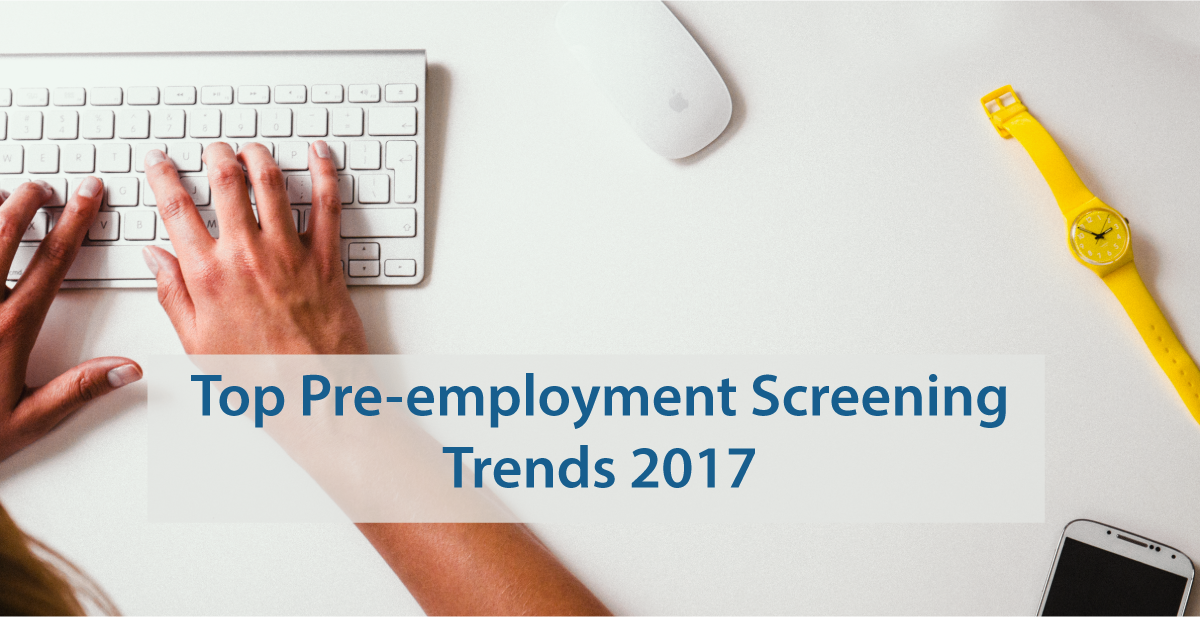
This article was first published on www.hrdaily.com.au
Pre-employment screening is experiencing a boom phase, with four checks in particular set to become even more popular in 2017, a specialist says.
Pre-employment screening is experiencing a boom phase, with four checks in particular set to become even more popular in 2017, a specialist says.
Employers are becoming more mindful about how candidates can affect the culture and reputation of their organisations and are using pre-employment screening to weed out those who won't be the right fit, InterCheck Australia Managing Director Hayden Langhorn told HR Daily.
He says organisations will perform more criminal history and social media checks to mitigate their people risks, and will increasingly use technology to identify candidates' identities and check references as a way of streamlining their processes.
Criminal history checks
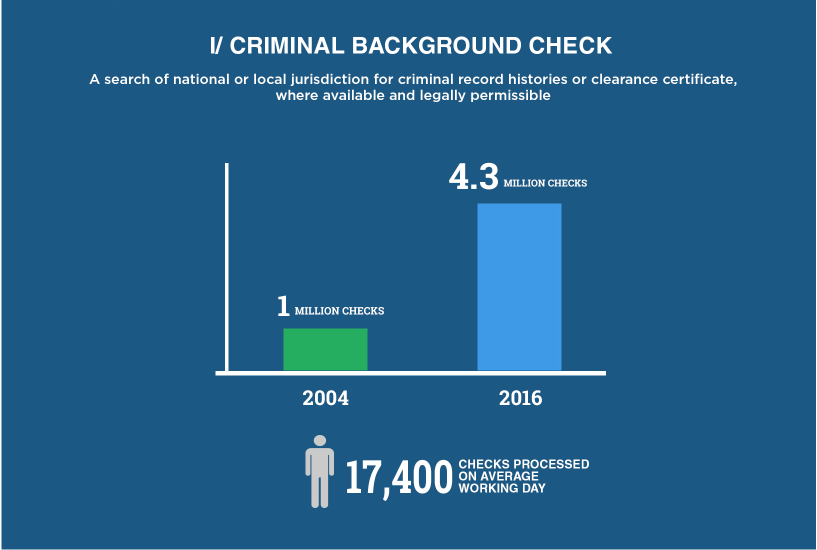
Last year, the Australian Criminal Intelligence Commission (ACIC) processed about 4.3 million police checks, compared to just one million in 2004, and Hayden is "confident that it's not going to slow down" in 2017.
Organisations are performing more criminal history checks because they want to ensure they aren't hiring someone who will "negatively impact their reputation", he says.
In the past, healthcare, mining and financial organisations were the ones most likely to check candidates' histories, but they've been joined by a lot of fast food, retail, manufacturing and small business employers, Hayden says.
Identity checks
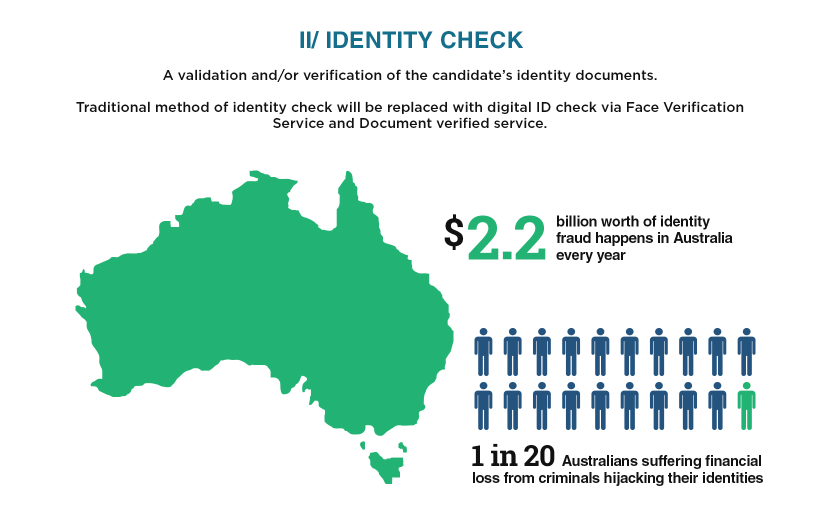
Using technology to verify candidates' identities is becoming a big trend, particularly among organisations that engage contingent workers, Hayden says.
As recent as a couple of years ago, employers would verify identities by requiring applicants to personally attend the workplace to show their ID and hand in certified documents, he notes.
But with more contractors and on-demand workers, and more people working remotely, it's "a bit of a challenge to verify a person's identity with those traditional means", and therefore facial recognition screening is being used "a lot more than in the past".
This type of screening involves technology taking a photo of a candidates' face and using algorithms to match the photo with a supplied image. Airlines in the USA, for example, use this technology to identify people who fly with them, Hayden says, noting this technology will become more common in Australia in the future.
Another type of identity check that will trend in 2017 is the Federal Government's Document Verification Service (DVS), he adds.
This agency matches details from identity documents such as a Medicare card or driver's licence with government records.
Social media checks
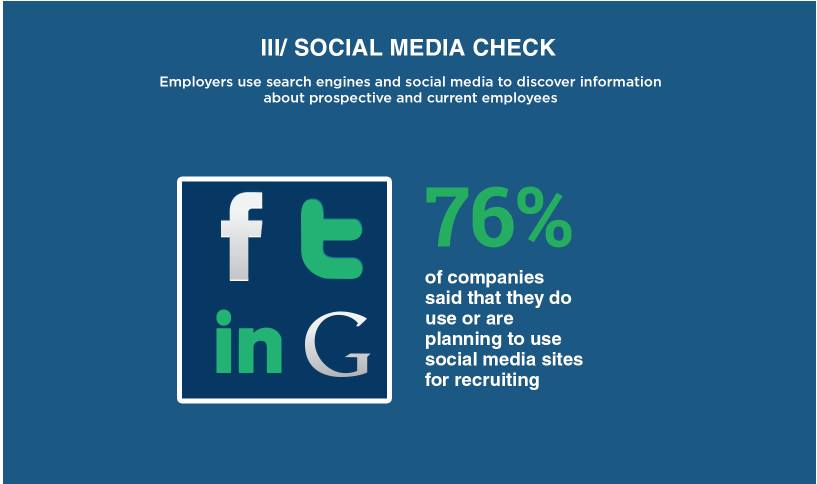
According to Hayden, 76 percent of employers uses or are planning to use social media sites in their recruitment process.
Organisations will search applicants' LinkedIn and Facebook profiles, for example, to identify their potential soft skills, social activities, what 'groups' they are part of, and the tone they use in their posts, to determine if they would be the right fit for the workplace, he says.
These types of checks, however, can raise some complications because of privacy legislation, and he warns organisations to be careful in how they use candidates' data.
Reference checks
Employers are quickly embracing technology to check applicants' references because of how "tedious" the process can be, Hayden says.
Some of the pain points of checking references in more traditional ways include questioning the validity of the reference (as candidates might put down a relative or friend), and the manual administration work that the process entails.
Companies can now use software to automate the process, Hayden says, which can mean that instead of having to contact referees, who might be busy at the time, the referee will fill out a survey online, or receive an email or text message asking them to contact the employer when they are free to provide a reference.
Other trends:
- The rise of on-demand workforce: partner with screening firms that provide services without geographical or technological limitation
- Speed: Reports on candidate can be configired and generated quickly
- Integration: Harnessing the power of API to produce short timeframes to get solution up and running
- Global screening: The diverse multinational Australian workforce requires a comprehensive background check to mitigate risks for companies who hire international candidates.
- Higher quality candidates: Tighter background screening will continue to help employers weed out unsuitable candidates and get the best talents on board.






